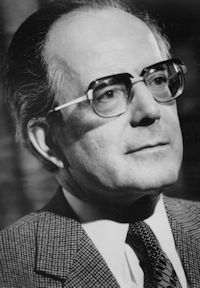Gramophone
I was present at the second of the performances of this new production given at the Munich Festival in the summer of 1983. This is a recording of the first night. That year Sawallisch had just taken over as Intendant at the Bavarian State Opera and managed to present all 13 of Wagner’s stage works to mark the centenary of the composer’s death. So it was quite an occasion, made more so by Sawallisch’s obvious dedication to his manifold tasks, not least this arduous one. That said, I recall that the evening seemed interminable. The staging was feeble, and four hours of indifferent, immature, Meyerbeerian Wagner on a hot night gave little pleasure.
At the time a record of the occasion was promised; it has taken more than 12 years to appear. When reviewing the Hollreiser set, AW evinced some enthusiasm for the piece. I find it remarkable only in that within a few years Wagner could be transformed from the garrulous writer of this score, which would surely never be performed were it not by Wagner, into the taut and inspired composer of Der fliegende Hollander, even though some of the less attractive features of Tannhauser are already discernible.
Sawallisch’s conducting, confident, long-breathed and thus managing to make us forget many of the score’s banalities, and the playing of his orchestra are good reasons for hearing the set, and a further one is the fledgling Studer, who on stage made a distinct impression as the put-upon Irene and does so again in purely vocal terms. Kollo is a more appealing Rienzi here than for Hollreiser and encompasses his long part in the proceedings with decent tone and amazing stamina. But the performance is lamed by Sawallisch’s casting of Adriano with a high baritone rather than a mezzo. Janssen, singing the part down an octave, often sounds pressed by its tessitura. The remainder of the cast is drawn from Munich regulars of varying ability.
Hollreiser has a mezzo Adriano, an advantage, but a less appealing Irene than Studer. Sawallisch is said to have restored cuts but he conducts 30 or so minutes less than Hollreiser of what was originally a six-hour score. If anyone actually wants more of the music, Hollreiser will remain the choice. In any case, he yields nothing to Sawallisch in his interpretation and his orchestra are as excellent. EMI also offer the advantage of a libretto and translation, Orfeo only a synopsis, a serious drawback.’
Alan Blyth





